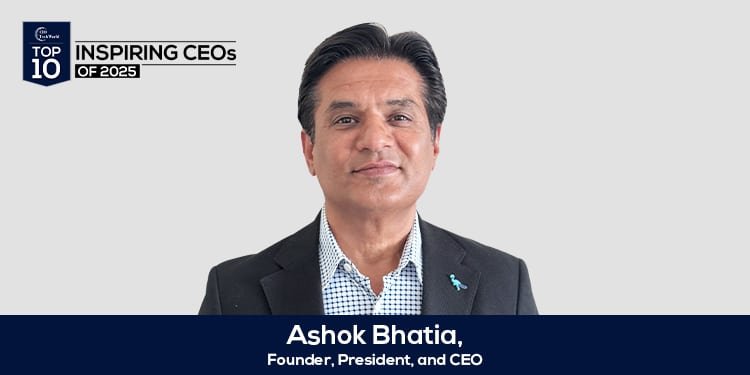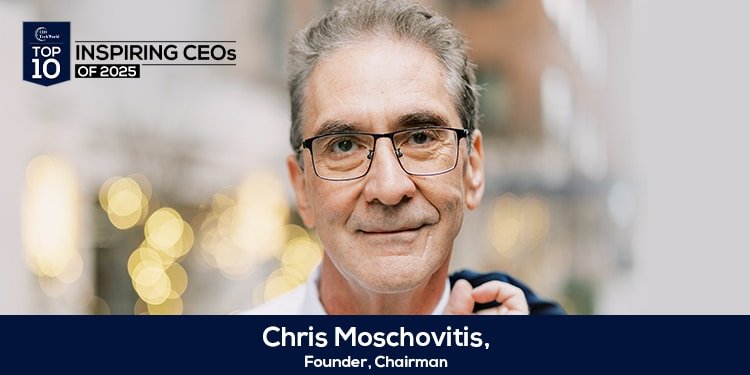Eric Sigurdson, the CIO Practice Leader at Russell Reynolds Associates, brings to the table more than two and a half decades of expertise in recruiting IT leaders spanning various industries and functions within technology organizations. His recruitment philosophy revolves around striking the right balance between experiential fit and cultural fit, which he considers crucial for successful outcomes. The scope of his searches includes top-level technology positions including CIOs, CTOs, Chief Digital Officers, Chief Data Officers, CITOs, CIDOs, CISOs, and the new Chief Artificial Intelligence Officer role. Notably, Eric has been involved in recent CIO searches across diverse industries, including retail, airline, pharmaceutical, consumer packaged goods (CPG), agriculture, industrial, technology, and food services.
In a recent interview, Eric delved into the essential qualities that enable CIOs to excel in their role, providing valuable insights into the challenges, trends, and opportunities they may encounter in today’s ever-evolving landscape.
Can you tell us about your background and experience as a CIO Practice Leader at Russell Reynolds Associates?
My technical career began during my time at the University of Illinois, where I earned a B.S. degree in computer science and mathematics. After graduation, I joined IBM, spending eleven years specializing in technical and equipment sales across the Midwest. During my tenure, I held various leadership positions in marketing, sales, and management. Subsequently, I pursued further education, completing my M.B.A. at the University of Chicago, Booth School of Business. In 1995, I joined Russell Reynolds, and I have been with the firm for 28 years, half of which I have dedicated to leading our firm’s CIO Practice.
My primary focus involves a combination of global and regional work, with a strong emphasis on North America, particularly the Americas. I lead a dedicated team of eight professionals focused exclusively on top technology officer searches, including CIOs, CTOs, CISOs, and experts in data and analytics, engineering, and the emerging field of artificial intelligence and machine learning.
What key skills and qualities do you seek when recruiting CIOs?
The key skills and qualities I seek in successful CIOs include strong technical expertise coupled with effective leadership within large enterprises. These leadership skills encompass various dimensions:
- Empowering and holding teams accountable to ensure timely and budget-compliant project completion.
- Communication skills to facilitate alignment across the organization regarding project progress.
- Negotiating skills for dealing with vendors and peers internally to prioritize projects effectively.
- Prioritization abilities through a governance system that focuses on high-quality outcomes rather than trying to do everything at once.
When evaluating candidates, we conduct initial conversations and interviews, seeking examples of how they have demonstrated these capabilities. Additionally, we thoroughly speak to their past colleagues, doing references and market research to validate their claims.
Could you provide further insight into your quote about prioritizing cultural fit over experiential fit? I’d like to understand your perspective better.
What the quote means is that a candidate may possess a perfect experiential fit for the job, but if they only have a partial cultural fit, it is unlikely to work out. On the other hand, if there is a great culture and chemistry fit, and the experiential fit is only partial, it could still be successful, provided the person demonstrates strong learning agility. The main point is that underestimating the importance of cultural alignment with the organization being recruited for can be a mistake. Often, what hinders people from succeeding isn’t their experiential knowledge, but rather their ability to wield influence within the organization, which necessitates being aware of and adaptable to the existing culture.
What are your main goals when recruiting CIOs for client organizations?
Well, in this day and age, it is important to emphasize the diversity of candidates. Therefore, we are always looking for candidates who possess the right experience and cultural background to fit into an organization. Simultaneously, we put significant effort into presenting a diverse range of candidates, allowing the client to have a choice when selecting for the role. All our clients are actively seeking to add diversity of all types to their leadership teams including gender, race, industry, and management style. This criterion has evolved significantly over the last 10 years, becoming increasingly important, and we take it very seriously.
What are the key challenges faced by CIOs today?
I believe the challenges faced by CIOs today are part of an ever-changing industry. From the late 90s addressing the Y2K issue to ERP transformations in the early 2000s, and later dealing with the financial crisis in 2010, each era has brought its challenges. Cloud migration dominated between 2012 and 2020, while the latest shift focuses on how generative AI will impact not just technology but the entire business landscape.
It is crucial for CIOs to be aware of evolving technology trends and stay a step ahead of the business, simplifying complexities and becoming strategic partners. Business leaders are increasingly interested in technology’s impact, and it falls upon CIOs to stay informed and address these trends effectively.
With the recent rise of generative AI, many organizations are eager to adopt the technology. How are CIOs observing this trend, and how do they plan to leverage it?
Well, I believe it’s a relatively new area that has gained global recognition in the past six months. But it is still early, and there’s more to come. We are all trying to internalize and understand it. Different industries vary in their level of aggressiveness, but mainstream IT is still trying to grasp its implications.
How has the CIO role evolved over time?
Indeed, there has been a significant shift in the CIO role over the years. Back in the late 90s, CIOs were often highly technical individuals but lacking in business skills. Organizations then emphasized the need to help technologists understand the business better, acting as effective translators. This led to some companies appointing business leaders to the CIO position due to frustration with tech-focused leaders who couldn’t comprehend the business needs.
Throughout the 2000s and 2010s, this trend continued, but with the advent of the iPhone and the ease of building applications, the pendulum started swinging back. Now, organizations seek CIOs who possess both technological knowledge and a product mindset, favoring agile development teams and DevOps over traditional waterfall-based projects.
This shift toward product-oriented thinking has been the most significant change observed in the CIO role over the last few years.
Given the strategic importance of the CIO’s role, how much autonomy do they have in terms of leading the digital transformation of their organization?
I believe it depends on the culture and environment. The most effective CIOs possess significant influence, convincing the business to grant more latitude in how they approach their role. The worst scenario is when a CIO is perceived as an order taker, merely fulfilling requests without an effective prioritization process. This leads to overwhelming demands and dissatisfaction. Implementing an effective governance process ensures that essential projects and initiatives receive attention, avoiding a mediocre approach to everything.
How do you perceive the role of the CIO within the broader organizational structure?
If you are referring to the organizational structure as the reporting structure, all CIOs aspire to report directly to the CEO. However, due to a limitation in the number of direct reports to a CEO, the best CIOs understand the importance of partnering with all of the CEO’s direct reports, translating business issues into technology solutions. This helps the CEO see their value and include them in the executive leadership team. It is always preferred for the CEO to request having the CIO report than to them as opposed to having the CIO demand it.
Another crucial aspect is building strong relationships with peers in finance, supply chain, HR, manufacturing, operations, and legal. Understanding their needs and having their support is essential for success. These horizontal relationships are often more critical than the reporting structure itself, especially if the CIO reports to the CEO, as their interactions are primarily with peers.
How do you stay current with industry trends and best practices in CIO recruitment?
I learn from the candidates I interview daily. Through these conversations, they share insights about their work, industry relevance, ongoing transformations, and emerging technologies they use. This information helps me stay informed about current trends.
Additionally, I avidly read general business press and subscribe to technology forums, which keeps me up to date with industry developments. Attending conferences and speaking at events, like the Forbes Summit, further provides valuable access to technology trends. All these outlets contribute to my knowledge of technology’s evolving landscape.
What advice would you offer aspiring CIOs seeking career advancement?
Broad experience is vital. If you originated from the application side of the business, gaining exposure to leading infrastructure and operations will broaden your skill set. When organizations seek a CIO, a diverse range of experiences will showcase your credibility in leading the entire function. Improving communication and influencing skills through coaching is crucial. Additionally, refining management and leadership abilities, including accountability, talent attraction, and retention, are key factors for CIO success.

As a seasoned professional with over a decade of experience in technology and business magazine publication, I’ve had a front-row seat to witness the astounding pace at which the industry has evolved, often outstripping even Moore’s Law. My passion lies in crafting engaging technology articles that invite readers to immerse themselves in the dynamic and ever-changing world of technology. With each piece, I strive to create a window into this world, offering a glimpse of the amazing events and breakthroughs that continue to shape our future.








